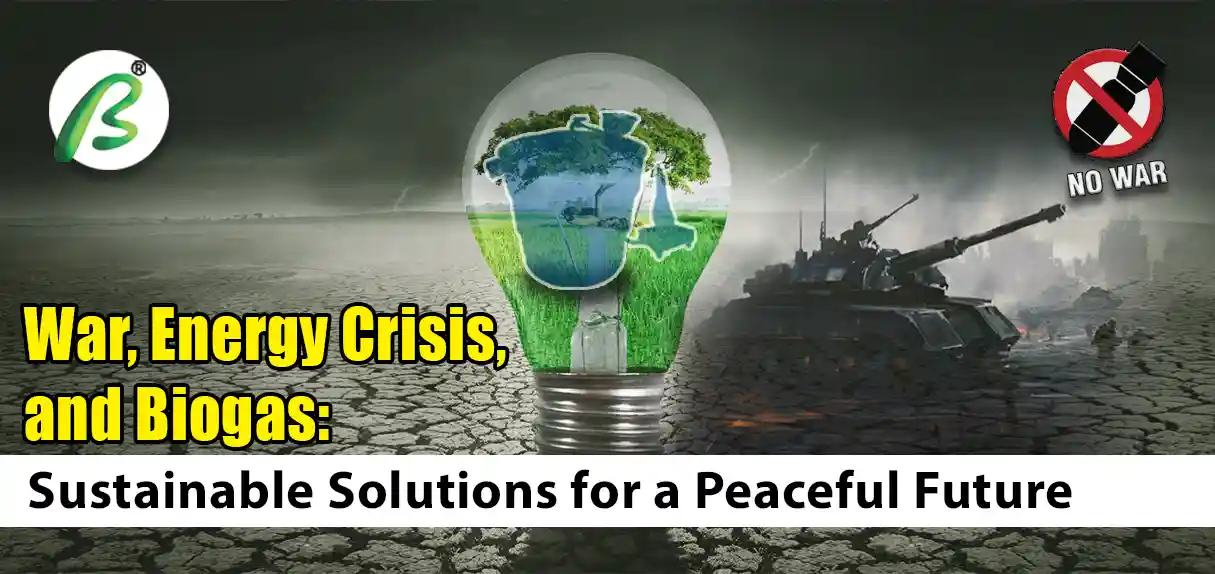
By Dr. A. Sajidas
Managing Director, BIOTECH INDIA Renewable Energy
International Consultant for Biogas, Organic Waste Management & Sustainable Development
In a world increasingly threatened by conflict and climate change, the intersection of war and energy has become a pressing global concern. The fallout of modern warfare extends beyond human suffering and economic instability-it brings a devastating environmental toll and intensifies the energy crisis. As nations scramble for fossil fuels and strategic resources, the impact on ordinary lives becomes unbearable. In such a fragile global context, renewable energy, especially biogas from organic waste, emerges as a powerful tool to combat energy insecurity, environmental pollution, and climate change.


Wars in oil-rich regions like the Middle East and Eastern Europe have long been associated with disruptions in energy supply chains. These conflicts often result in:
Destruction of energy infrastructure.
Skyrocketing LPG and crude oil prices.
Displacement of communities and breakdown of essential services.
Emission of toxic pollutants and greenhouse gases.
Loss of biodiversity and long-term environmental degradation.
The energy crisis triggered by war disproportionately affects developing countries and low-income households. Families struggle to afford cooking gas, industries face shutdowns due to lack of fuel, and governments divert resources away from sustainable development.
Additionally, modern warfare results in widespread environmental pollution. Explosions, burning oil fields, and the use of heavy artillery release massive amounts of carbon dioxide, sulfur compounds, and heavy metals into the atmosphere. This further accelerates climate change, contributing to extreme weather events, rising temperatures, and food insecurity.
In the face of these challenges, the world must look toward decentralized, clean, and resilient energy solutions that reduce dependency on fossil fuels and support community-level energy generation. Among these solutions, biogas technology holds special significance.
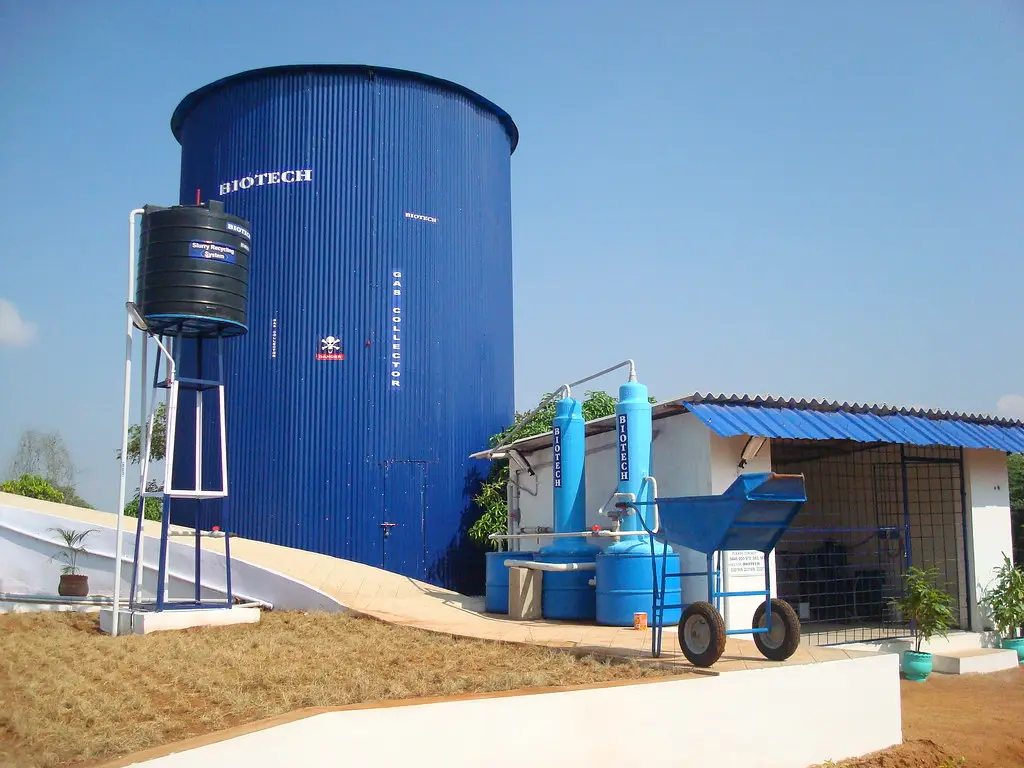
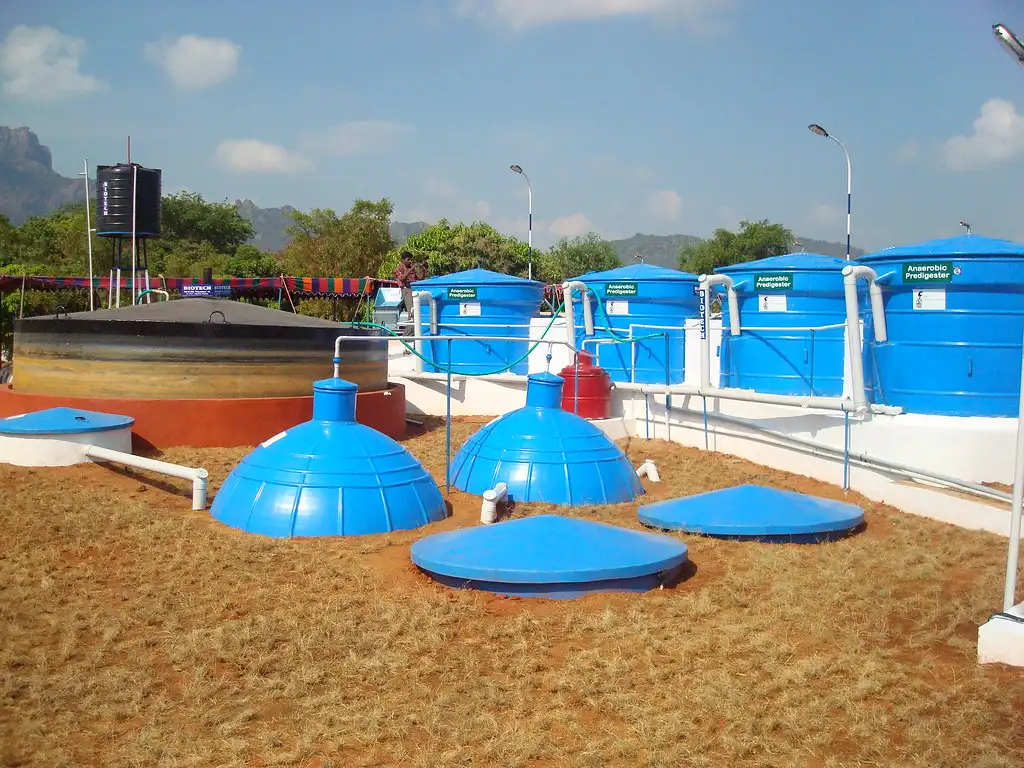
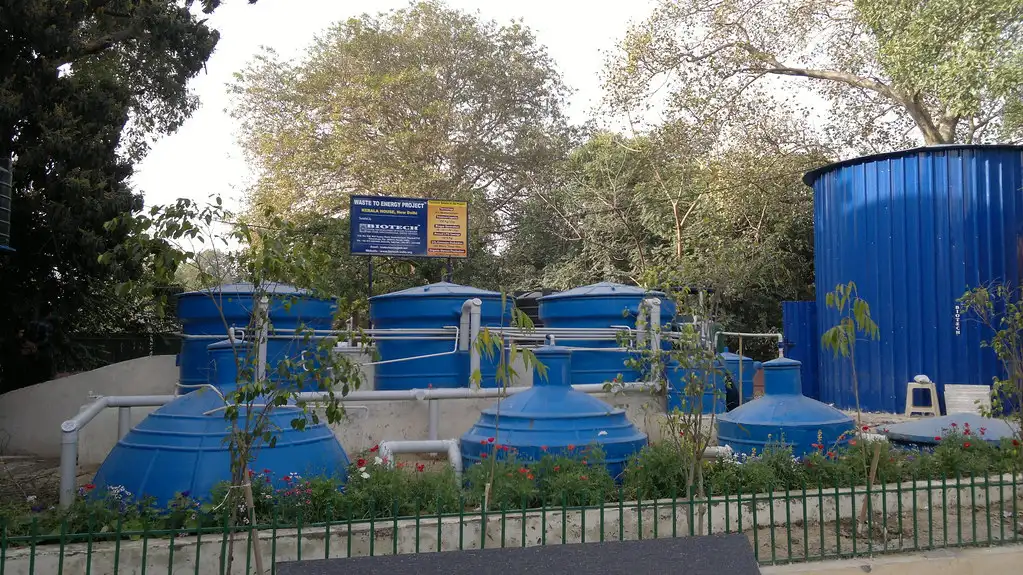
Biogas is produced by the anaerobic digestion of organic waste such as food scraps, kitchen waste, animal manure, and sewage. This simple, scalable, and sustainable technology offers clean fuel for cooking, heating, and electricity generation.
Reduces dependency on LPG and imported fossil fuels
Converts waste into clean energy, reducing landfill and pollution.
Cuts greenhouse gas emissions, especially methane and CO2.
Promotes circular economy and self-reliance.
Generates organic fertilizer as a by-product.
Creates employment and income opportunities, especially in rural areas.
Our work focuses on: Designing and manufacturing biogas plants of various sizes and models suitable for homes, institutions, markets, slaughterhouses, and municipalities.

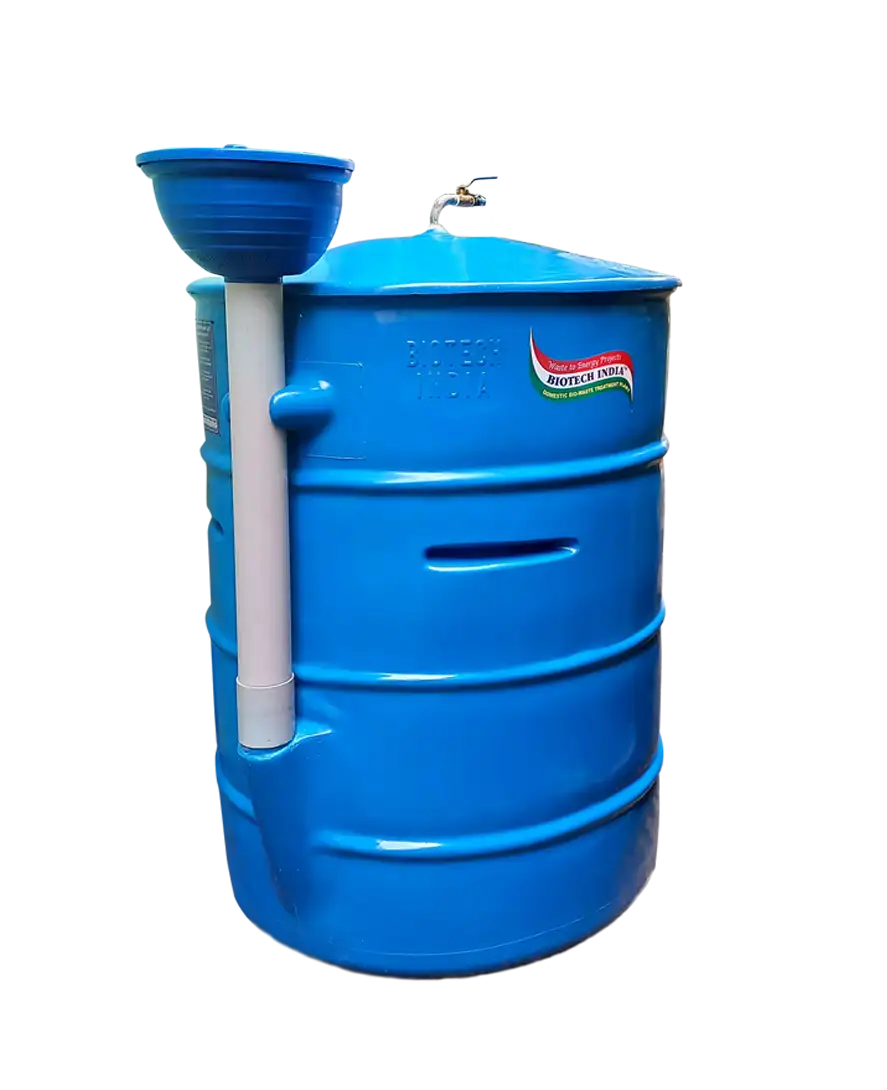

Encouraging decentralized waste-to-energy systems that empower families and communities Promoting climate-resilient, renewable energy infrastructure through local capacity-building and awareness campaigns.
Our portable biogas plants, constructed from durable fiberglass, are ideal for both rural and urban households. They are easy to install, operate, and maintain, with a lifespan of over 20 years. These systems use daily kitchen waste to generate high-pressure biogas suitable for cooking, enabling households to switch from costly and polluting LPG cylinders.
When wars disrupt global supply chains, the centralized energy infrastructure collapses first. Cities plunge into darkness, LPG becomes scarce, and rural communities are left behind. Centralized energy systems are vulnerable to sabotage, blockades, and political instability.
This is where decentralized renewable energy, like household or community-level biogas plants, becomes a lifeline. These systems do not rely on imports or large-scale logistics. They operate using locally available organic waste, giving families autonomy over their energy needs.
In war-torn or disaster-affected regions, portable biogas plants can be deployed as part of humanitarian relief. These plants provide clean cooking energy, help manage waste, and prevent the spread of diseases from rotting food and human waste.
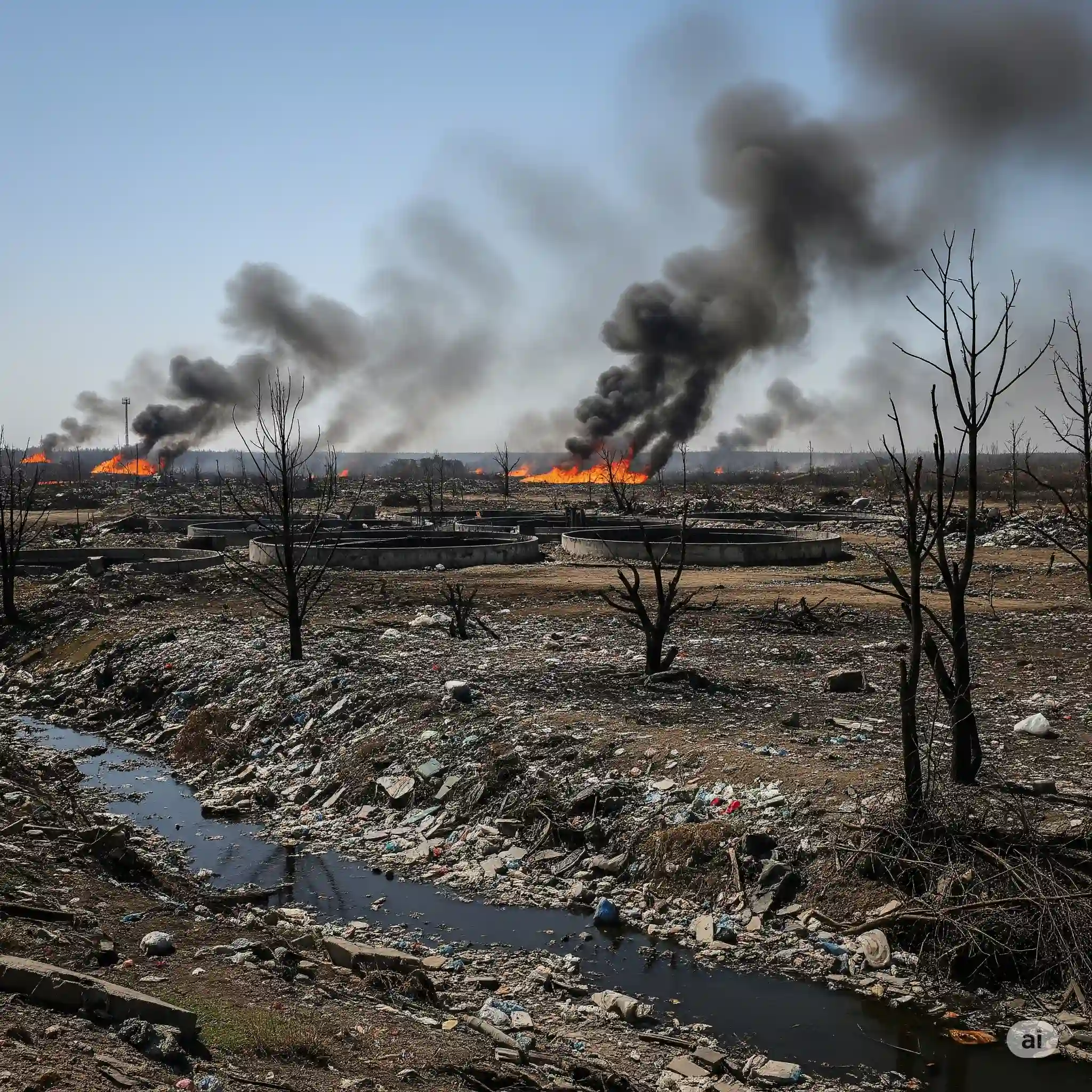

Warfare not only destroys ecosystems through bombs and fire, but it also hampers existing environmental safeguards. Waste treatment systems are damaged, and open burning of waste becomes common. This results in severe air and water pollution.
By promoting organic waste treatment through biogas technology, BIOTECH INDIA helps prevent the open dumping and burning of waste. Proper waste management:
Reduces urban pollution.
Improves public health.
Prevents groundwater contamination.
Enhances soil fertility through organic slurry.
With over 31 years of experience and a national service network, we at BIOTECH INDIA are committed to supporting institutions, local governments, and families in adopting green protocols and sustainable waste practices.
The IPCC (Intergovernmental Panel on Climate Change) and global organizations advocate for bioenergy as a key part of the transition to net-zero. By replacing LPG, firewood, and kerosene with biogas, we can drastically reduce carbon footprints, protect forests, and improve air quality.

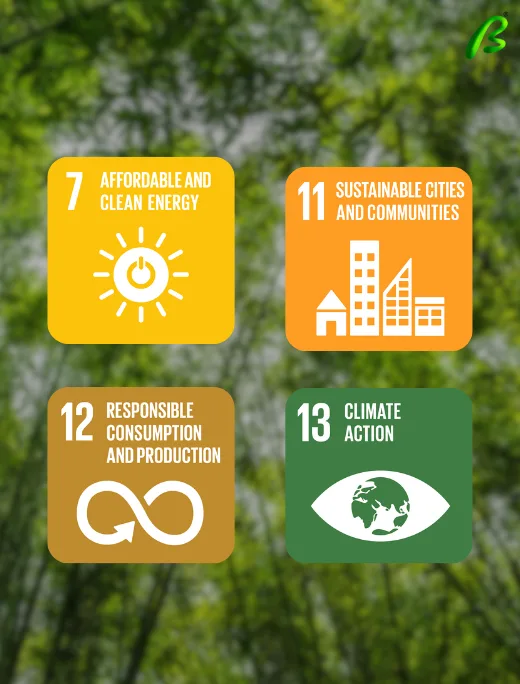
Biogas also aligns with the UN Sustainable Development Goals (SDGs):
Goal 7: Affordable and Clean Energy.
Goal 11: Sustainable Cities and Communities.
Goal 12: Responsible Consumption and Production.
Goal 13: Climate Action.
In post-conflict rebuilding and refugee rehabilitation programs, waste-to-energy systems can play a key role in restoring normalcy, ensuring energy access, and promoting environmental healing.
Empowering Communities and Creating Green Jobs.
Every biogas plant installed is a step toward.
Local energy sovereignty.
Cleaner neighborhoods.
Youth employment.
Inclusive development.
From masons and technicians to engineers and entrepreneurs, the biogas ecosystem generates a wide range of green jobs. We have trained hundreds of people in biogas plant installation, operation, and maintenance, building a strong green workforce across India.
In a time when the world grapples with war, pandemics, and environmental disasters, renewable energy is not just an option—it is a necessity. Biogas technology provides a unique opportunity to convert crisis into opportunity, waste into wealth, and pollution into progress.
At BIOTECH INDIA, we envision:
Biogas plants in every household.
Zero-waste cities.
Energy-secure villages.
Carbon-neutral communities.
We call upon governments, institutions, and citizens to join hands in promoting biogas solutions. Let us reduce our reliance on volatile fossil fuel markets and embrace a future rooted in peace, sustainability, and self-reliance.
Telephone: +91-471-2331909, 2321909, 2332179
E-mail: mailtobiotech@gmail.com


Ernakulam (Cochin)
Telephone: +91-484-4858695
E-mail: mailtobiotech@gmail.com


Kozhikode (Calicut)
Mob : +91-9446-000-962
E-mail: mailtobiotech@gmail.com


Telangana
Telephone: +91 40 29330078 , +919446000968
E-mail: gtp.nird@gmail.com

